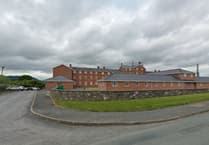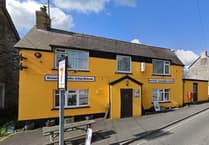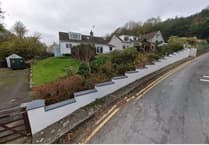A recently retired professor of economics and part owner of a smallholding in Snowdonia that has been in his family for more than 200 years and first run as a bed and breakfast in 1896, has hit out at Gwynedd Council’s decision to increase the council tax premium to 150 per cent.
Dr Dan Marsh believes the council’s “well-intentioned policy” to raise the premium to tackle the homelessness crisis may do more harm than good.
“Homelessness is a nationwide crisis that has little to do with holiday homes,” he told the Cambrian News.
“There is a lot of agreement on what needs to be done to reduce homelessness – more social housing and a more equitable society where people can afford to buy or rent decent accommodation.
“Many will also remember the mistaken policies of central and local government that led to our chronic shortage of social housing – but you will not find much reference to holiday homes as a cause of homelessness – nor of a punitive tax on holiday homes as a good solution.
“The council’s own research refers to a Welsh Government study that found no relationship between house prices and high levels of holiday home ownership. The same report noted second homes and holiday lets bring increased spending and more jobs.”
Dr Marsh says the council tax premium “is a very blunt instrument that will cause job losses and reduce household and business income while doing little to make housing more affordable”.
“Instead, we need a focussed set of policies to improve the provision of social housing and discourage the use of specific types of property for second homes and holiday lets,” he added.
“The council believes it will raise an extra £3 million per year from the premium – enough to build around 15 houses per year based on the Gwynedd median price of around £195,000.
“But the negative effects will far outweigh the benefit from these fifteen houses.
“The council aims to reduce the number of holiday homes but this may lead to hundreds of job losses – making hundreds of families worse off. In any case, there may be no long-term increase in council revenue. If second homeowners decide to sell, council revenue will fall – because properties marketed for sale are exempt. If local residents purchase them, they will not pay the premium.
“House prices are falling because of the state of the economy and high mortgage rates. The council tax premium may add to downward pressure and increase sales.
“However, many of the houses put on the market will not meet the needs of local people because they are too expensive, in the wrong place, or the wrong size.
“Falling prices will do little to make houses more affordable but will reduce the wealth of local residents and some will end up with negative equity. Jobs in tourism and related sectors may fall. Business income may also decline.”
Dr Marsh is urging the council to reverse the premium.
“Instead, they should take time to develop specific policies which will directly ensure that people can find an affordable home in the place they have grown up and to that end he offers his support and expertise,” he explained.




